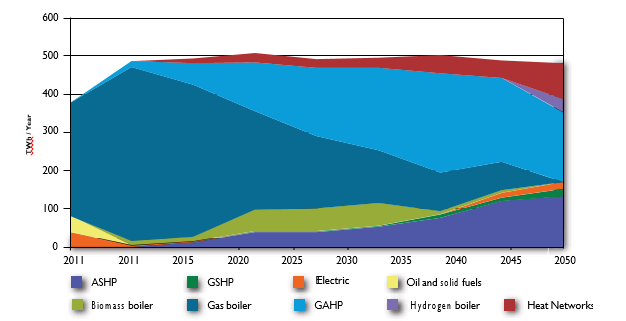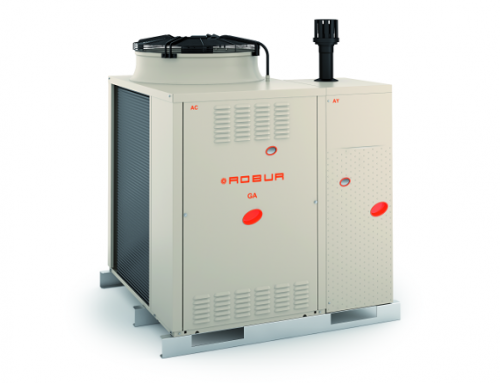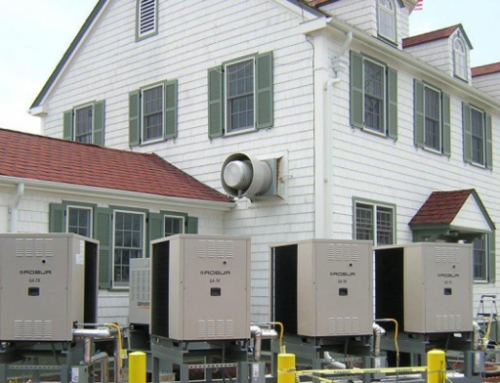Little did he know, but when Albert Einstein invented and patented the Einstein Refrigerator in 1926, he may have been playing his part in helping the UK to overcome a potential energy crisis nearly a century later.
Based on the principle of the vapour absorption refrigeration cycle, the patent was bought immediately by Electrolux and marketed under the Servel brand name. Gas fridges have remained popular ever since, particularly amongst campers and wherever there is a need for refrigeration but insufficient electrical power.
By the 1990’s, the technology had been acquired by Robur, an Italian company, who developed a reverse cycle heat pump version, capable of high efficiency heating with or without cooling. This may be the development which helps the UK and its energy predicament.
In simple terms, here’s how and why:
Approximately 80% of our power demand comes from residential use, and 80% of that is used to heat water. So that’s over 60% of total UK power demand is to heat water in our homes. A disproportionate demand arises from rural buildings and period properties.
Consequently, the UK’s strategy for replacing or supplementing power with renewable sources implies a substantial investment to upgrade its power transmission infrastructure, in excess of £100 billion, the sum of money conservatively estimated as needed to deliver the renewable power to the new technologies.
So the inevitable consequence of generating a greater proportion of power through wind or wave or by nuclear power, and of replacing gas boilers with electric heat pumps is an expensive infrastructure bill. And even if we were prepared to foot that bill, a shortfall in supply is anticipated due to the time required to plan and build these new generating plants.
There are hundreds of rural settlements and thousands of buildings which just don’t have sufficient power to let too many of them replace their boilers with electric heat pumps, for example.
That’s why the government has identified the importance of utilising gas to bridge this shortfall. Part of its heating strategy to meet the UK’s carbon targets for 2050 identifies CHP, gas hybrid heat pumps and Gas Absorption Heat Pumps (GAHPs) as the natural replacements for existing boilers in domestic and non-domestic properties.
In reverse cycle, a commercial GAHP is more than 150% efficient, typically offering 40kW output for 25kW input. A smaller machine with an 18kW output has been developed, specifically aimed at older or larger properties where electric heat pumps are ineffective or inefficient. Against a typical efficiency of 90% for a condensing boiler, the renewable contribution, carbon reduction, as well as running costs are in the region of 40%.
Gas absorption heat pump technology is now recognised as suitable for inclusion within the renewable heat incentive (RHI) and work is in progress to see products listed with MCS and afforded the appropriate incentives such as feed in tariff (FIT) to encourage uptake.
Albert would be delighted!





